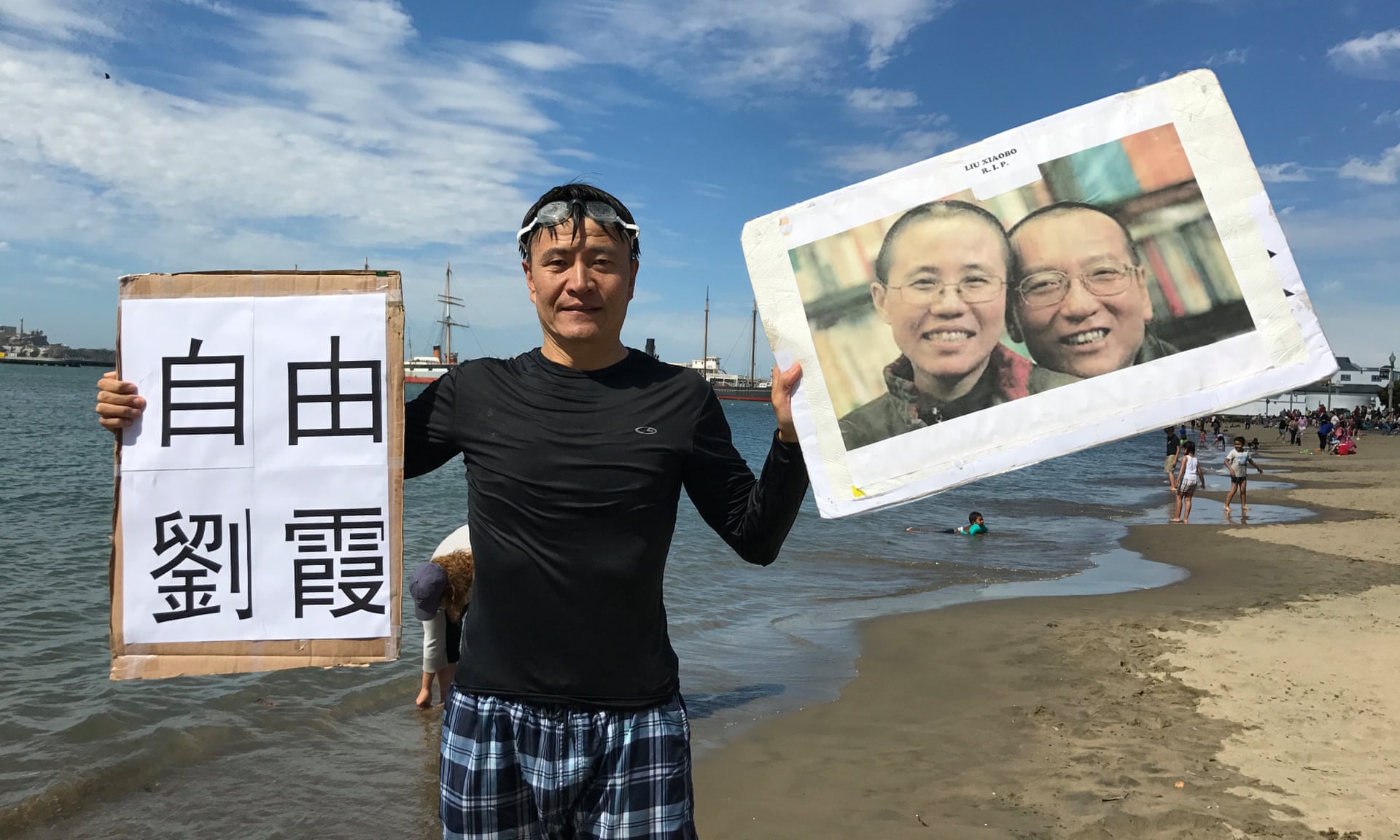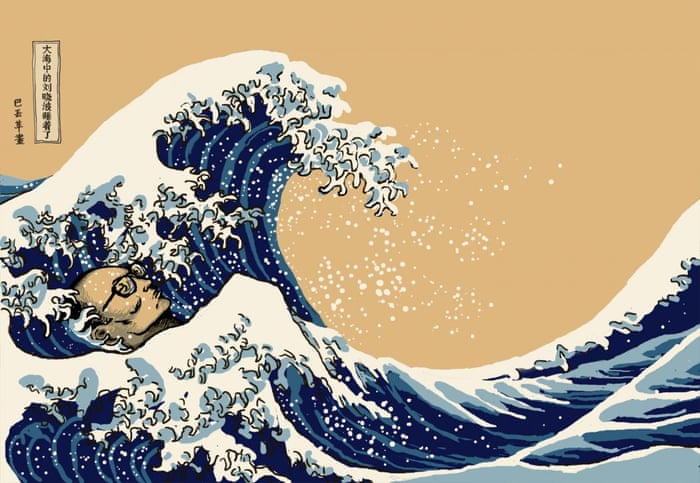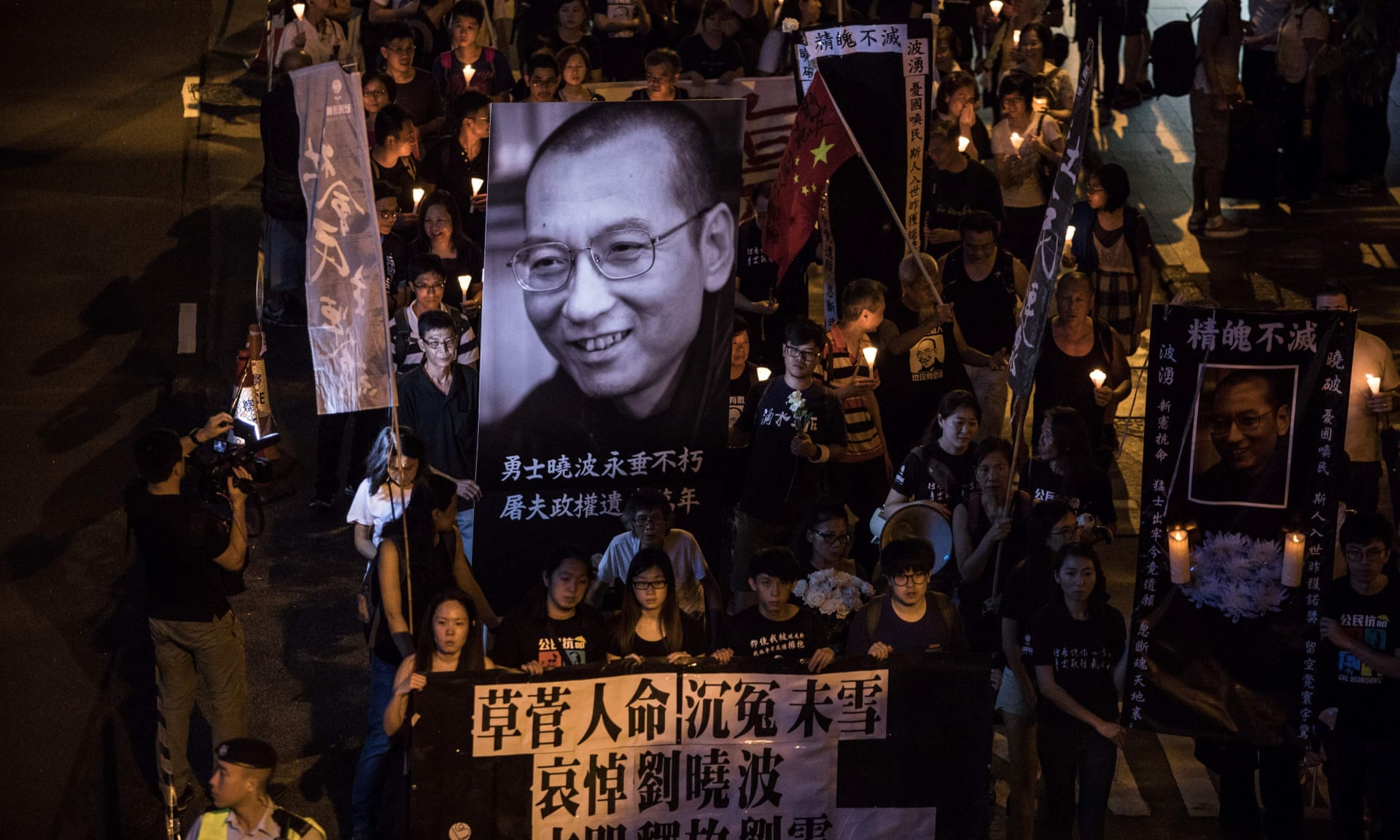By Jamil Anderlini
Liu Xiaobo, the great Chinese public intellectual and Nobel laureate died last week while serving an 11-year sentence for peacefully disagreeing with one-party rule in his country.
His death last week was a farcical spectacle of cruelty.
His liver cancer was not discovered or acknowledged by his captors until he had just weeks to live, his medical treatment was little more than a fig leaf and his dying wish to leave China was rejected.
The government arranged a hasty burial at sea so that his grave could never serve as a shrine to the country’s most famous dissident, and his brother was paraded before the media to thank the Communist party and the government for his mistreatment.
Given its roots as a revolutionary movement, the party understands very well the power of charismatic martyrs like Liu, which is why it takes him and his message so seriously.
Already pervasive levels of state censorship have reached new heights in the past week and the government has lashed out angrily at western media for their coverage of Liu and his untimely death. Beijing’s public argument boils down to this: Liu was convicted in a Chinese court so he is a common criminal, awarding him a Nobel Prize was a “blasphemy” and none of this is the business of anyone outside China.
The real rationale, expressed by some officials in private, is this: People like Liu, with their non-violent idealism, calls for individual freedom and willingness to die for their beliefs, pose a potent threat to one-party rule.
The current Chinese leadership have read Alexis de Tocqueville’s The Ancien Regime and the French Revolution and also closely studied the periods leading up to the 1917 Russian Revolution, the 1911 Chinese revolution and the fall of the Soviet Union.
Their conclusion is that authoritarian systems are at their most vulnerable when they attempt to liberalise.
The Chinese Communist party must therefore avoid this at all costs.
Since gradual political reform is off the agenda, individuals like Liu must be ruthlessly suppressed lest their spark sets off the prairie fire that could threaten the stability of Chinese society as a whole.
The fact that Liu earned his stripes as a dissident during the 1989 Tiananmen Square demonstrations and subsequent massacre makes his case so much more significant.
China’s leadership argues, and many ordinary people believe, that the country’s economic success since then would not have been possible had the party not unleashed the People’s Liberation Army on unarmed demonstrators.
Government officials and Communist party cadres think it was a necessary evil.
They believe that the political chaos that could result from a fresh popular push for democracy would result in misery for hundreds of millions.
Compared with that, they ask, what is the suffering of one stubborn individual?
To understand the ruthless authoritarian paranoia behind Beijing’s treatment of Liu is not to excuse it.
This is how Liu himself put it in 2006: “Although the regime of the post-Mao era is still a dictatorship, it is no longer fanatical but rather a rational dictatorship that has become increasingly adept at calculating its interests.”
In calculating those interests, the regime has decided that it was safer to turn Liu into a martyr than to allow his ideas to spread unchallenged.
This conclusion is probably correct in the short term.
Thanks to the party’s efforts, the vast majority of Chinese people have never heard of Liu and most of those who have heard of him think he was a hopeless troublemaker.
His death will not spark a revolution.
But I wonder if the party’s calculation will prove correct over the longer term.
By explicitly rejecting gradual top-down democratisation, it is increasing the likelihood of an eventual bottom-up rejection of authoritarian rule.
If and when that day comes, the demonstrators will no doubt carry banners featuring Liu’s smiling face and emblazoned with the words he wrote but was forbidden to read at his trial on Christmas Day in 2009: “There is no force that can put an end to the human quest for freedom, and China will in the end become a nation ruled by law, where human rights reign supreme.”










